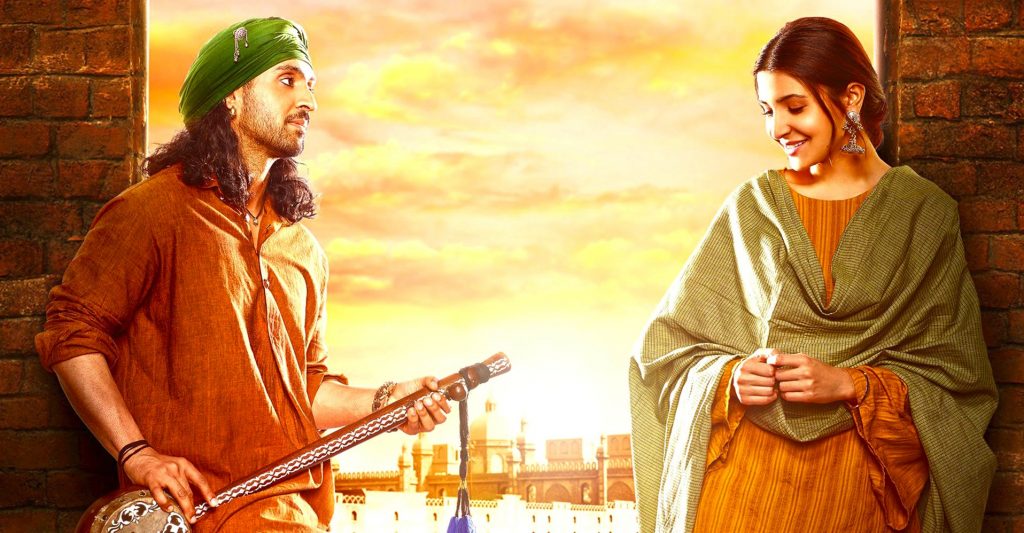In spite of some fine performances from Anushka Sharma, Manav Vij and especially Diljit Dosanjh, Phillauri is a surprisingly boring tale, which seems to go on and on and on and… yes, on.
Phillauri had potential to be quite the fluffy, enjoyable film, which would also touch the heart. The trailers certainly seemed to indicate so. However, some weak writing and lackadaisical pacing lets down the film big time. One cannot help but feel it is a case of lost opportunity for director Anshai Lal.
In a story that had immense promise, we find out that just before the big, fat Punjabi wedding (of course!), the Canada based groom, Kanan (Suraj Sharma), already suffering from pre-wedding uncertainties, is manglik. To ward off the evil eye, he is persuaded to marry a tree which is then axed down. This releases the ghost of Shashi (Anushka Sharma), who believes she is married to him now (Corpse Bride (2005), anyone?) and is seen only by him. After some silly and occasionally smile-inducing humor, we learn of Sashi’s past in Phillaur village in Punjab about a century ago; of her tragic love story with a rock star like folk singer and local Don Juan, Roop Lal Phillauri (Diljit Dosanjh).
There are interesting elements in Phillauri, in both the past and present stories, no doubt. They just don’t come together anywhere as well as they should. The transitions between the past and present are jarring, highlighting yet again, just how little importance is given to transitions in between scenes for a smoother narrative flow. It doesn’t help that the love story of yesteryear is anything but epic or memorable. Neither is the present particularly engaging. However, I’ll admit the past certainly does have more meat in it. Perhaps because Anushka’s spunky character, who writes poetry under a pseudonym as it was something women just didn’t do at the time, is relatively well-fleshed out. There are also some nice moments in Shashi’s romance with Roop Lal before going the highly predictable way.
Among other issues – we see Shashi’s flashbacks from her POV but like typical Indian films, these flashbacks open out to neutral storytelling with several scenes with Roop Lal and his friend that Shashi was never privy to. So that we get the whole picture, but in a manner that takes the easy way out. And it’s highly unlikely that a rural Punjabi lass in the World War I era, who has only lived in her village, would write poetry in Hindi. In a film that mixes Hindi and Punjabi pretty much anyway, this stands out even if Shashi does write her poems in the Gurumukhi script. One wonders sometimes how much to buy the argument that it needs to be done for Hindi cinema’s pan Indian market. Gunga Jumna (1961), the biggest ‘Bollywood’ film of its time, stuck faithfully to its Bhojpuri dialect and proved to be extremely successful throughout the country.
To be fair to Phillauri, all the performances in the film, including the well-chosen supporting cast, are spot on. Barring the about to-be-married young couple in the present. In their defense, Suraj Sharma and Mehreen Pirzada suffer from awfully written roles, making them come across as irritating, stupid, immature teenagers who therefore should not be getting married in the first place. Pirzada, in particular, is treated as a total bimbo, who has lived in Amritsar all her life and yet has to search the net for what happened on Baisakhi day, 1919, perhaps Amritsar’s biggest tragedy ever. No, I’m not telling you what happened. Anyway, by now you would have figured it out and guessed why the Shashi-Roop Lal love story needs closure.
The technicalities are fine. The music gels well with the film, Dum Dum and Sahiba being particularly well composed. To say that the film is overstretched is an understatement. Too many scenes continue far too long after their point is made, making an already languid paced film even slower. Especially the so called twist to do with Shashi’s unfulfilled love and the subsequent climax, which takes the cake, icing and cherry on top along with it. Along with trimming, perhaps the script too needed a drastic pre-shooting edit. And yes, the Production Design and the VFX teams have combined to make Anushka quite the magical ghost, a far cry from Hindi cinema’s stereotypical women in white.
But ultimately, it’s the content that falters and there is no two ways about that. Phillauri had much going for it in its embryonic stage but fails to deliver finally.
Hindi, Punjabi, Comedy, Drama, Color


